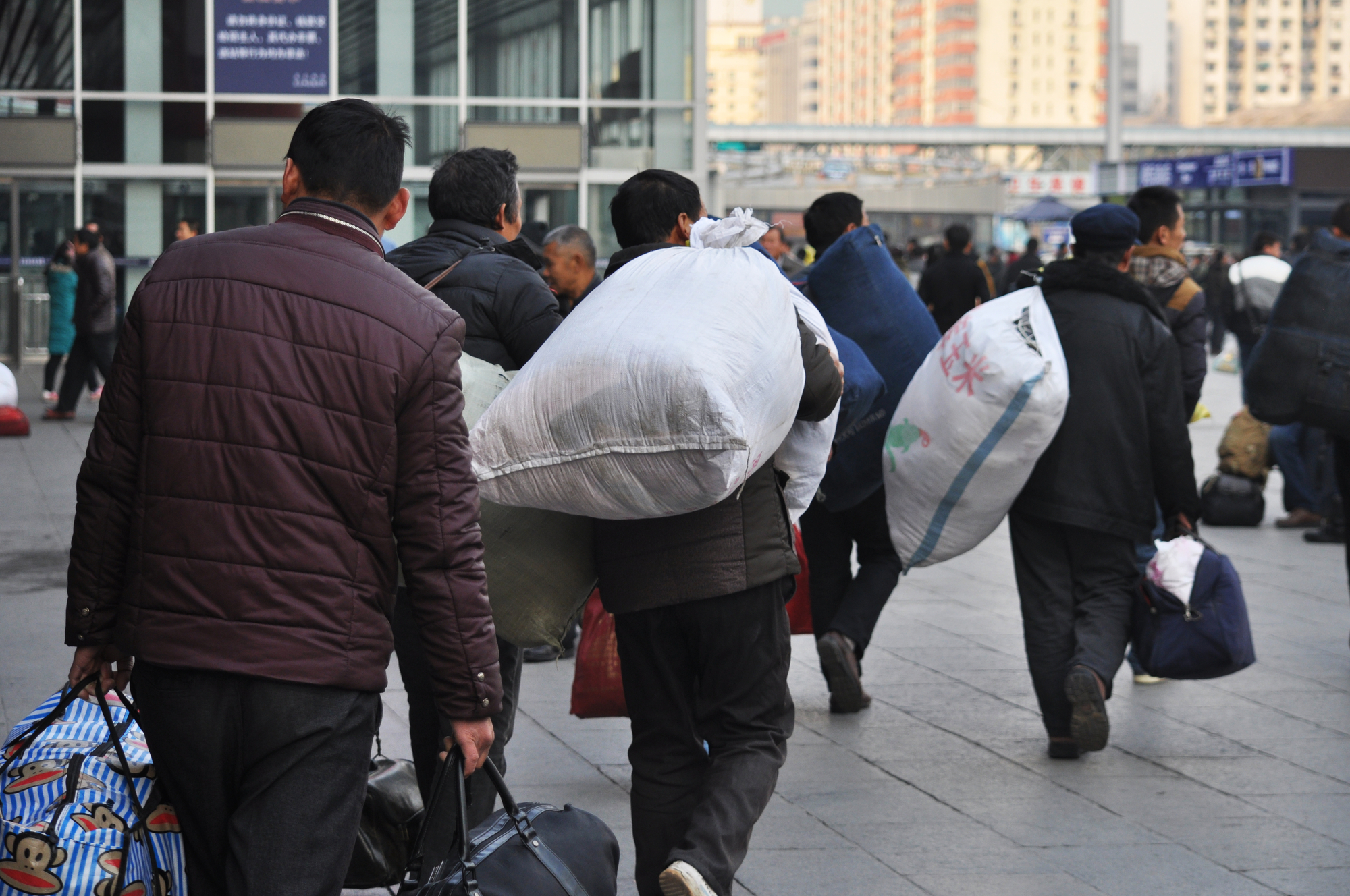Migrant workers in China who bear with labor-intensive jobs, leave their families behind as they head to big cities, and endure living on the fringes of society to make ends meet face a persistent risk, which has recently been brought to light by government officials: unpaid wages.
Failing to pay Chinese migrant workers has turned into an “alarming” situation as the country’s festival season draws near, warned China’s Minister of Human Resource and Social Security, Yin Weimin, who noted that the industrial overcapacity has further complicated the matter.
According to the ministry’s data, governments of different levels nationwide had helped around 2.3 million migrant workers to get their overdue salaries, totaling at 23 billion yuan (around 3.3 billion US dollars) by the end of the third quarter in 2016.
However, the issue has become thornier as Chinese Spring Festival lies around the corner, Yin said earlier this week.
The Chinese New Year falls on January 30.
Traditionally, migrant workers are expected to return, along with their savings, to their hometowns for family reunions or, at least, wire money back around the festive season.
Official statistics from the National Bureau of Statistics (NBS) show that the number of migrant workers had reached 277 million by 2015, most of whom fill blue-collar jobs.

A construction worker refuses to leave the building of his contractor's firm over delayed pay, Dec., 2015.
Construction workers have hard time getting paid, with their cases accounting for over 80 percent of the payroll-related disputes, Yin had said.
Since the beginning of December, a group of construction workers in the northern Chinese province of Jilin have “blocked” the entrance of the building they worked on with steel bars in protest to allegedly not receiving any payment albeit finishing their project and meeting their responsibilities, reported Xinwenhua Newspaper on Sunday.
Unpaid wages often lead to built-up anger among the workers who resort to extreme means, sometimes including violence, in an attempt to exert pressure on their employers.
“The problem of arrears of large enterprises and the resulting problems of mutual arrears among smaller enterprises that depend on commissions from large firms have put the country’s growth restructuring at risk,” noted the Journal of the Chinese People's Political Consultative Conference earlier this year.
China, which is in the middle of a major structural overhaul of its economy, has stepped up efforts to cut overcapacity in traditional industries, with policies that risk the dismissal of millions of workers.
In the past two years, China has phased out over 100 million tons of steel-making capacity involving some 1 million employees. However, the government has mobilized 100 billion yuan (14.57 billion US dollars) to help the laid-off workers find new jobs, while ensuring their resettlement or the re-employment with other jobs.
Still, obstacles persist and the unfair treatment of migrant workers continues.
Moreover, China’s state-owned manufactures continue to feel the pinch as worldwide demand for raw materials remains sluggish, altering their bottom line and consequently leading to transaction delays and failures to fund the projects they commissioned.
“The overcapacity accumulated in steel and coal industries have contributed to the increase of pay delay risk in the sector,” admitted Yin.

Migrant workers walk into a railway station in Beijing heading back home, Nov., 2016.
Unclear contracts with blurry terms with regards to payment often catch the majority of Chinese migrant workers by surprise and put them under the mercy –and, sometimes, deception skills – of those who employ them.
Education levels remain low among Chinese migrant workers, most of whom come from rural parts of the country. According to NBS data published earlier this year, nearly 92 percent of all Chinese migrant workers have no college degree, with only a handful having secured a junior high school diploma before setting out to work.









